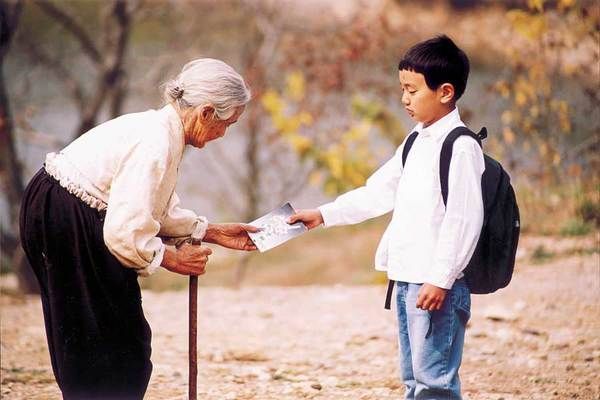By Ahmed Wafi
*WARNING THIS ARTICLE CONTAINS MOVIE SPOILERS*
“The Way Home”. One of my first experiences watching a foreign movie in full that lasted an hour and a half. I was never fond of watching foreign films with subtitles because of the hassle of having to watch the events of the movie while paying attention to the subtitles at the same time.
After about fifteen minutes into the movie, my brain managed to adapt to the subtitles and live action of the movie and by the end of the movie I realised that this was no foreign film. It spoke the universal language of love.
The first few scenes of the movie had me and most of the audience cursing the young boy for his ill-treatment of his old, ill and mute grandmother. I kept asking myself why this boy was behaving in such a way, does he not know better? Almost at the same time I asked myself whether or not I had been this rude to my grandmother and hope to God that I had not.
Cursing a stranger on the television screen will eventually get boring and I began to question whether compassion is a characteristic as a result of nature of nurture. I believe that infants know what love is and will show love to whoever shows them love first but then I realised every baby is different.
There are some babies who refuse to be held by anyone other than their mother no matter how polite and friendly you might appear to them but there are also some babies who will accept you with open arms (literally) as soon as you show a sufficient amount of friendliness.
As the movie progressed, I realised that the boy, Sang-Woo, would show acts of compassion and would treat his grandmother slightly better if her grandmother had completed favours for him. It was seen in the scene when the grandma went to look for chicken for him and Sang-Woo responded by trying to clean up the scribbles on the wall that he was responsible for. So, do children need to be shown love in order to show love?
Every child is different and this began to make me try to comprehend the amount of patient parents need in order to raise a child. Fortunately, my parents had been patient enough with me and I felt ever so grateful while hoping that as a child I did not cause too much trouble to them.
Some people would criticise Sang-Woos mother for leaving her child with her grandmother who seems to not have received much financial support from her daughter. Praise is due to the grandmother for showing the amount of love to Sang-Woo that can only be shown from a grandmother to her grandson.
I wondered whether Sang-Woos mother must have eventually lost patience with him and thought that she needed time away from him in order to fulfil some of her worldly duties. Its quite obvious that she hadnt visited her mother in quite some time so clearly, she was desperate.
Sang-Woos mother did not seem to show much compassion for her own mother and actually tried to pay her in return for babysitting her son. The payment of medicine and undergarments were accepted but the former was given away to someone who the grandmother thought was in higher need for it.
The amount of patience shown by the grandmother was outstanding I thought to myself. To have nothing but continuously give everything is such an admirable trait that will surely be rewarded.
From the perspective of the director, the acting was top notch as the actors’ and actresses role was strong enough to make one feel strong emotions of hate, pity and eventually satisfaction towards them.
The ending of the movie was a satisfying one as Sang-Woo finally realised where he had gone wrong and tried his best to make up for it. When a man (or boy) realises, admits and tries to make up for his mistake what more can you ask for?***
Photo taken from hancinema.net
